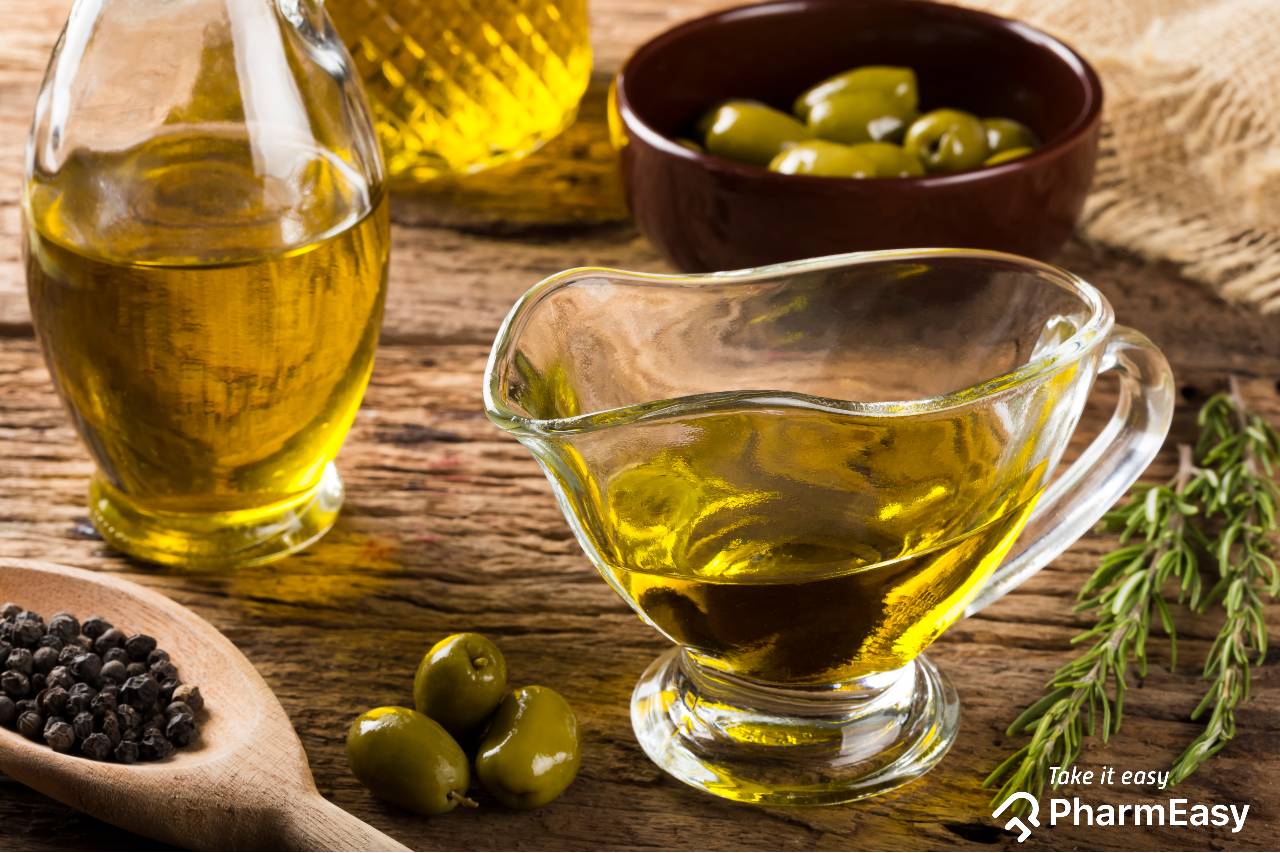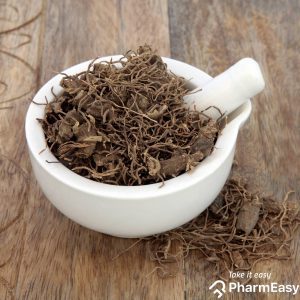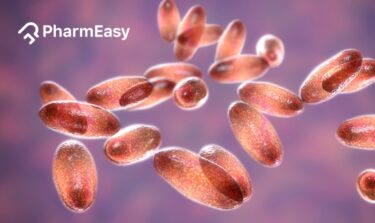Table of Contents
Introduction:
Olive Oil is trendy worldwide, and it is mainly extracted from Olives. There are three significant parts of Olives such as Epicarp (the outer covering), Mesocarp (the pulp), and Endocarp (the pit). The olive is composed of 70% of juice, in which 40 to 60% is water, and the remaining 10 to 30% is Oil. Olive Oil on the north side is known as “Jaitoon ka tel”, a pale yellow to dark green depending on the processing involved in its preparation.

In daily life, it is used for cooking and preparation of salad dressings or table spreads. Olive Oil is known for its medicinal properties as it helps to reduce bad cholesterol and increases the good cholesterol levels in the body. It also helps to lower blood sugar levels and controls diabetes. Olive Oil is good for skin and hair. Olive Oil can help prevent the dryness of skin and hide the aging parameters of the body.
Olive Oil, along with coconut oil blend, is most popular used for baby body massage. Olive Oil contains an astonishing number of fat-soluble vitamins such as A, E, and K. Olive Oil is also rich in different minerals and antioxidants, helping maintain good health.
Olive Oil Processing
1. Cleaning of Olives
In this step, fresh olives are harvested, and non-essential parts such as debris, leaves, and stems are removed. Then Olives are subjected to washing; they are washed using running water to the dirt and pesticides.
2. Preparation of the Olive Paste
The cleaned and washed Olives are crushed into the grinder to make a fine paste. These grinders are designed in such a way to retain the natural aroma and taste of Oil. After smashing into the stone grinder, the Oil is allowed to hold it for 30 min. During this time, the crushed mixture’s natural enzymes will let breaking components in aldehydes and ketone to give a particular aroma and taste to Olive Oil.
3. Separating the Olive Oil Using Centrifugation Step
In this step, Olive Oil is separated from the mixture using a centrifugation step. The Oil insoluble component, which is denser, is separated in this stage. Clarification of Olive Oil using filtration step
Once the Olive crude Oil is obtained from the centrifugation step. Crude olive oil is subjected to filtration, which finally gives clear greenish color Olive oil. Olive Oil is stored at room temperature until its further use for cooking.
Different Types of Olive Oil and their Suitability of Application
- Extra Virgin Olive Oil: For the preparation of salad dressings and mayonnaise
- Virgin Olive Oil: For baking purposes
- Refined Olive Oil: For cooking
- Pure Olive Oil: For body massage and blending
- Olive Pomace Oil: For cleaning purposes and high heat cooking
Over the years, I’ve come across studies showing that olive oil may have potential properties that can protect the kidneys from damage caused by certain substances. In some studies, the combination of olive oil and naringenin has shown positive effects in improving kidney function and reducing markers of kidney damage.
Dr. Rajeev Singh, BAMS
Source of Olive Oil
Olives are non-Indian origin crop, and it is mainly produced in countries like Greece, Spain, Italy, Tunisia, Morocco, Turkey, Syria, Algeria, and Portugal. It is also cultivated as a cash crop in other countries like Yugoslavia, France, Cyprus, Israel, Egypt, Libya, Lebanon, Jordan, Argentina, Mexico, Chile, Peru, Australia, and the USA.
Chemical Components of Olive Oil
Olive Oil is a powerhouse of several essential elements as given below table,
Major Nutrients in 100gm of Olive oil (Proximate ingredients)
- Total Calories: 884 Kcal
- Fat (Calories): 884 Kcal
- Total Fat (Saturated and Unsaturated): 100 g
- Protein: NA
- Carb: NA
- Water: NA
Olive Oil is known for its unique Fat, Lipids, Fatty Acids, and Other Components. Below are the components present in 100gn of Olive oil
- Total Fat: 100 g
- Saturated Fat: 13 g
- Monounsaturated Fat (MUFA): 73 g
- Polyunsaturated Fat (PUFA): 10 g
- Cholesterol: NA
- Trans Fat: NA
- Omega-3 Fatty Acids: 761 mg
- Omega-6 Fatty Acids: 9763 mg
- Vitamin E (alpha-tocopherol): 14.39 mg
- Vitamin K: 60.2 µg
- Phytosterols: 221 mg
- Calcium: 1 mg
- Iron: 0.56 mg
- Potassium: 1 mg
- Sodium: 2 mg
In my experience, I have observed that incorporating virgin olive oil as the primary culinary fat in your diet may be beneficial for weight management. Studies suggest that consuming virgin olive oil in moderate amounts over time may be associated with a lower body mass index.
Dr. Smita Barode, B.A.M.S, M.S.
Other Names for Olive Oil
- In Hindi, it is known as Jatun tel.
- In Marathi, it is known as Oliva tela.
- In English, it is known as Oliva oil.
- In Malayalam, it is known as Oliv oyil.
- In Tamil, it is known as Aliv enney.
- In Telugu, it is known as Aliv nune.
Health Benefits of Olive Oil
- A bioactive medicinal component, i.e. Oleocanthal of Olive oil, has potent anti-inflammatory and antioxidant properties.
- Olive oil antioxidants help to reduce triglycerides, blood cholesterol, and bad cholesterol (LDL).
- The regular consumption of Olive Oil in diet can reduce the risk of atherosclerosis.
- The antioxidants in Olive Oil help to manage the high blood pressure of the body.
- Olive Oil helps deal with constipation problems due to its laxative property.
- Olive Oil improves bowel movement, which will further soften the stool for making it easier to pass through the colon.
- Due to the antioxidant and anti-inflammatory properties of Olive Oil, it helps to manage type 2 diabetes. The primary functioning involved in this process is Olive Oil reduces the breakdown of carbohydrates, which further lowers blood sugar levels.
- Olive oil consumption enhances insulin secretion, and it also prevents the damage of pancreatic cells. A research study showed that the oleic acid of Olive Oil reduces blood glucose levels drastically.
- Olive Oil is very effective in managing Rheumatoid arthritis. It is also due to its anti-inflammatory and antioxidant properties. Oleocanthal present in Olive plays a vital role in reducing the joint pain and swelling related to Rheumatoid arthritis.
- Olive Oil is beneficial in cancer treatment. It could be due to the Phenolic component present in Olive Oil which has potent antioxidant and anti-inflammatory properties. These phenolic compounds help to quench the free radicals generated by the body during physical stresses.
Including olive oil in your diet can be a healthy choice for your liver. I’ve seen that plant-based products can be good for liver health. Olive oil, a key part of the Mediterranean diet, has antioxidants that can protect the liver and may reduce the risk of certain cancers.
Dr. Siddharth Gupta, B.A.M.S, M.D (Ayu)
Olive Oil for Cardiovascular Health
Olive Oil is a good source of monounsaturated fatty acids (MUFA) and polyunsaturated fatty acids (PUFA). Therefore, it is recommended to replace saturated fat or Trans Fats in the daily diet with MUFA and PUFA, then the risk of cardiovascular diseases decreases. Olive oil consumption is also related to improvement in the elasticity of arterial walls and prevent them from hardening. Olive Oil also prevents the formation of clots and plate aggregation. The combined effect of all functions helps in the reduction of the risk of coronary heart disease.
Olive Oil and Cholesterol Levels
Olive Oil is very healthy for the heart as it helps lower triglycerides, LDL cholesterol (bad cholesterol), and total cholesterol levels. Olive oil consumption helps maintain a standard lipid profile of the body. It further reduces the risk of the onset of coronary heart disease.
Olive Oil and Prevention of Oxidative Stress
An increase in oxidative stress is not limited to cardiovascular diseases, type 2 diabetes mellitus, cancer, arthritis, cataract, and Alzheimer’s disease. Olive Oil contains fat-soluble vitamin E, an excellent antioxidant that protects the body by fighting oxidative stress.
Olive Oil and Prevention of Osteoporosis
A research study showed that the consumption of Olive Oil helps to maintain bone mineral density and loss of bone mass. There is an increase in alkaline phosphatase activity (ALP), which allows to deposit of calcium ions in the extracellular matrix and further improves calcification after consumption of Olive Oil through a daily diet.
Olive Oil as Anti-Aging
Due to the presence of essential antioxidants in Olive Oil, its regular consumption helps slow down the natural process of the human body’s aging. The consumption of Olive Oil regularly also improves the skin tone.
Olive as an Anti-cancer
Olive Oil is very beneficial for treating breast cancer and bowel cancer. Due to the presence of antioxidants, Olive Oil helps to retard the growth of carcinogens in the body, which further protects against cancer.
Olive Oil Improves Memory
Olive Oil is considered a superfood for brain health as its regular consumption improves memory in older adults.
Olive Oil and Health of Hair
Olive Oil helps to moisturize the scalp and treat the damaged and dry hair. It is due to vitamin E and different antioxidants, which improve the quality of hair and further strengthen them.
Recommended Dosage of Olive Oil
The Ayurvedic products, preparation, and dosage/day of Olive Oil
Capsules:
- Preparation: Take one capsule of Olive Oil with lukewarm water after every meal.
- Dosage/Day: Two times
Oil:
- Preparation: Take two teaspoons of Olive Oil, followed by lukewarm water.
- Dosage/Day: One time
Precautions and Side Effects of Olive Oil
- In the case of breastfeeding, it is recommended to take advice from a doctor before consuming Olive Oil.
- As Olive Oil can lower blood glucose levels, it is also recommended to monitor sugar levels if someone takes Olive oil supplements.
- Olive Oil helps lower blood pressure, but it is advisable to monitor blood pressure if someone is taking Olive oil supplements.
Summary
Olive Oil is a natural moisturizer that leaves skin remarkably smooth and soft. Olive Oil is a source of antioxidants and fat-soluble vitamins known to neutralize free radicals, which damage the skin to accelerate the aging process.
Frequently Asked Questions (FAQs):
Yes, Olive oil consumption is good for Diabetes problems. Olive Oil contains bioactive components that have antioxidant and anti-inflammatory properties. These bioactive components help to reduce the breakdown of carbohydrates and further help to lower blood sugar levels. Olive Oil also promotes the pancreas to enhance insulin secretion.
Yes, Olive oil is good for treating psoriasis. Psoriasis is mainly dry, red, and scaly patches on the skin. Due to its immunomodulatory and anti-inflammatory properties, Olive Oil reduces skin rash and dryness associated with Psoriasis.
Yes, Olive oil is good for treating earache. Olive Oil is perfect for managing ear pain triggered by an infection. Olive Oil possesses antibacterial properties, and this will help to reduce disease and pain in the ear.
Read more about: Could Aloe Vera Help You Get Healthy Hair?
Disclaimer: The information provided here is for educational/awareness purposes only and is not intended to be a substitute for medical treatment by a healthcare professional and should not be relied upon to diagnose or treat any medical condition. The reader should consult a registered medical practitioner to determine the appropriateness of the information and before consuming any medication. PharmEasy does not provide any guarantee or warranty (express or implied) regarding the accuracy, adequacy, completeness, legality, reliability or usefulness of the information; and disclaims any liability arising thereof.
Links and product recommendations in the information provided here are advertisements of third-party products available on the website. PharmEasy does not make any representation on the accuracy or suitability of such products/services. Advertisements do not influence the editorial decisions or content. The information in this blog is subject to change without notice. The authors and administrators reserve the right to modify, add, or remove content without notification. It is your responsibility to review this disclaimer regularly for any changes.



 By
By 





















Comments